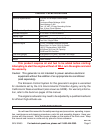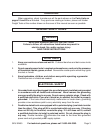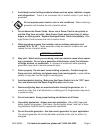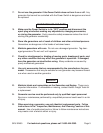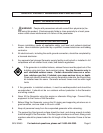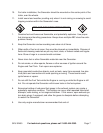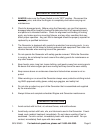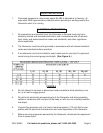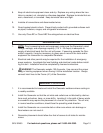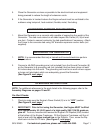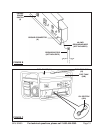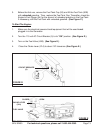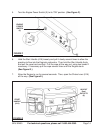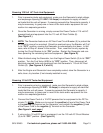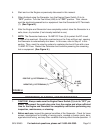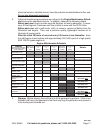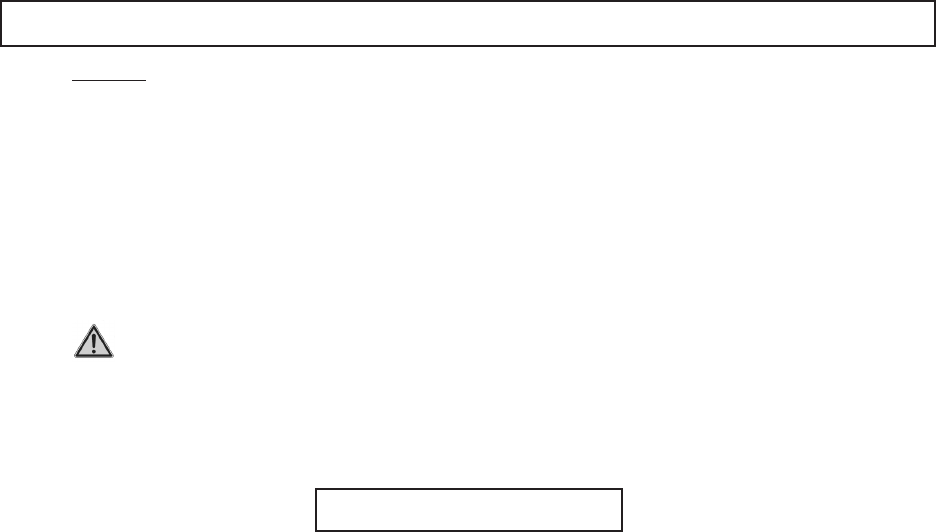
SKU 92455 For technical questions, please call 1-800-444-3353. Page 10
8. Keep all electrical equipment clean and dry. Replace any wiring where the insu-
lation is cracked, cut, abraded or otherwise degraded. Replace terminals that are
worn, discolored, or corroded. Keep terminals clean and tight.
9. Insulate all connections and disconnected wires.
10. Guard against electric shock. Prevent body contact with grounded surfaces such
as pipes, radiators, ranges, and refrigerator enclosures.
11. Use only Class BC or Class ABC fire extinguishers on electrical fires.
INSTALLATION
1. NOTE: Prior to powering tools and equipment, make sure the Generator’s rated
voltage, wattage, and amperage capacity (115 V - 20 Amps) is adequate to
supply all electrical loads that the unit will power. If powering exceeds the Gen-
erator’s capacity, it may be necessary to group one or more of the tools and/or
equipment for connection to a separate Generator.
2. Electrical and other permits may be required for the installation of emergency
power systems. Investigate the local building and electrical codes before install-
ing this unit. Installation must be completed by licensed contractors.
3. WARNING! The Generator weighs 103.6 pounds. Use care and the proper
lifting or hoisting equipment when moving it to the installation location. Always
connect hoist lines to the Frame (41) of the Generator.
GENERAL LOCATION
1. It is recommended to locate and install the Generator outdoors where cooling air
is readily available.
2. Install the Generator so that the air inlets and outlets are not blocked by obstruc-
tions such as bushes, trees, or snow drifts. Locating it in the path of heavy winds
or snowdrifts may require the placement of a barrier for protection. The air inlet,
in normal weather conditions, should face the prevailing wind direction.
3. Install the Generator on a concrete slab or other area where rain drainage or
flood waters can not reach it.
4. Generator placement should allow four feet of access to all sides for mainte-
nance.



